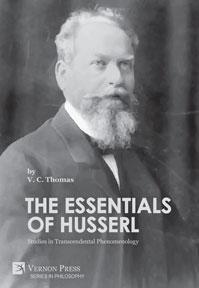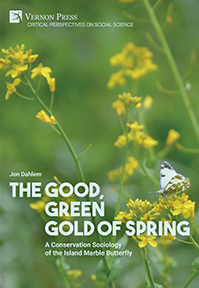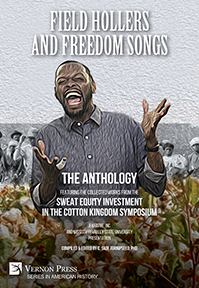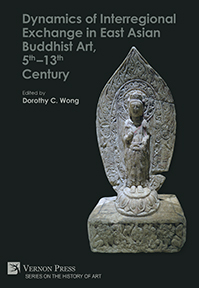Search
Browse
by Publication status
by Subject
Anthropology (26) Art (171) Business and Finance (38) Cognitive Science and Psychology (63) Communication and Journalism (51) Economics (116) Education (71) History (168) Human Geography (23) Interdisciplinary (43) Language and Linguistics (178) Law (16) Music Studies (18) Philosophy (222) Political Science and International Relations (127) Sociology (402) Statistics and Quantitative Methods (21)by Series
Series in Literary Studies (62) Series in Philosophy (57) Series in Education (49) Series in Sociology (42) Series in World History (31) Series in Politics (30) Bridging Languages and Scholarship (25) Series in Language and Linguistics (25) Cognitive Science and Psychology (20) Series in Philosophy of Religion (20) Series in American History (19) Series in Art (19) Critical Perspectives on Social Science (16) Series in Cinema and Culture (16) Curating and Interpreting Culture (15) Series on the History of Art (14) Series in Anthropology (13) Series in Critical Media Studies (13) Economics (13) Series in Business and Finance (12) Series in Music (12) Series in Performing Arts (9) Philosophy of Personalism (8) Series in Communication (8) Series in Law (8) Series in Economic Methodology (7) Series on Climate Change and Society (7) Classics in Economics (6) Series in Economic Development (6) Women's Studies (6) Philosophy of Forgiveness (5) Series in Built Environment (5) Series in Economic History (5) Series in Philosophy of Science (4) Series in Social Equality and Justice (4) Series on the History of Science (4) Serie en Sociología (3) Series in Contemporary History (3) Series in Creative Writing Studies (3) Series in Design (3) The Interdisciplinary Built Environment (3) Series in Heritage Studies (2) Series in Innovation Studies (2) Serie en Ciencias Políticas (1) Serie en Comunicación y Medios (1) Serie en Entorno Construido (1) Serie en Estudios Culturales (1) Serie En Estudios Literarios (1) Serie en Filosofía (1) Serie en Música (1) Series in Classical Studies (1) Series in Economics of Technological Change (1) Series in Philosophy of Race (1) Series in Urban Studies (1)by Language
English Spanishby Author
Browsing with filters

The Essentials of Husserl: Studies in Transcendental Phenomenology
V. C. Thomas, Centre for Phenomenological Sciences, India; Pondicherry University, India
Availability: In stock
224pp. ¦ $61 £45 €52
Known as the founder of the phenomenological movement, this book examines Husserl’s various phases of phenomenology during his realist, transcendental, static, genetic, and post-Crisis (of European Sciences) periods. Consisting of ten carefully researched and thoroughly examined essays, this book describes Husserl’s concepts and ideas through numerous examples and diagrammatic representations, in a bid to elucidate the nuances of phenomenology for its readers. Valuable insights into Husserl’s realist phase are made in the chapter on Meaning, and the chapters on Natural Attitude, Epoché and Phenomenological Reduction, while the chapter on Noesis & Noema symbolizes the transcendental phase. Thomas points out Husserl’s transition from static to genetic phenomenology in the chapter on Lived Body, with the chapters on Lifeworld, and the Notion of the Other, later focusing on this perspective. Husserl’s entire phenomenological space, including his pre-phenomenological period, are covered in the chapter on Lived Time. However, the chapters on Phenomenology: The Study of Self and Beyond, and Consciousness and Intentionality are the fulcrums upon which the edifice of phenomenology turns. The final chapter on Presuppositionlessness in phenomenology expresses Thomas’ personal enquiries into Husserl’s contention that phenomenology is a presuppositionless science. This book will be of particular interest to research scholars and post-graduate students in the areas of Philosophy and Social Sciences, as well as those interested in contemporary Western Philosophy, and the history and development of Ideas.
The Good, Green Gold of Spring: A Conservation Sociology of the Island Marble Butterfly
Jon Dahlem, Bellevue University
Availability: In stock
168pp. ¦ $52 £41 €49
This book presents a case study of Island Marble Butterfly (IMB) conservation from an environmental sociological perspective. Using qualitative methods, the study explicates various social components of a collaboration of stakeholders working together to protect the species from extinction. Rediscovered in 1998 after being presumed extinct for nearly a century, the IMB persists exclusively among the San Juan Islands, WA, where the efforts of scientists, local conservationists, government employees, and non-profit organizations have sustained the species, even achieving a listing under the Endangered Species Act. For these reasons and many others, the IMB presents a case in some ways fascinating for its idiosyncrasies and in other ways indicative of broader trends in conservation work in an era of rapid global biodiversity loss. From the study emerges a call for increased sociological research that contributes knowledge beneficial to conservation practice, or what the book calls “conservation sociology.” The book reviews existing literature in this space and provides a framework for constructing research, theory, and application in conservation sociology. As the social components of IMB conservation are explored, so too are components of conservation sociology. The book describes competing norms and beliefs among IMB stakeholders, demonstrating the capacity of conservation sociology to describe and interpret social phenomena in conservation work; explores power dynamics in the collaboration, using sociological theory to interpret significant events in IMB conservation; and analyzes the significance of time in IMB conservation while providing suggestions for applied conservation work based in sociological perspectives. The book accomplishes three main goals. First, it provides an account of details and events in Island Marble Butterfly conservation. Second, it defines, positions, and develops conservation sociology. Third, it demonstrates original research in conservation sociology, resulting in a deep look at the complexities of the social components of species conservation.
Behavior Analytic Approaches to Promote Enjoyable Mealtimes for Autistics/Individuals Diagnosed with Autism and their Families
Edited by
Joseph H. Cihon, Endicott College; Autism Partnership Foundation et al.
Availability: In stock
396pp. ¦ $96 £79 €90
It has been estimated that 70% to 90% of individuals diagnosed with autism spectrum disorder (ASD) experience mealtime challenges (Volkert & Vaz, 2010). Most approaches to the treatment of mealtime challenges have focused on decreasing interfering mealtime behaviors through escape extinction (i.e., requiring consumption of food prior to meal termination) and other approaches that may be perceived as punitive by parents, individuals diagnosed with ASD, and other stakeholders. In recent years, there has been an increase in research on promoting enjoyable mealtimes for individuals diagnosed with ASD and their families. The purpose of this edited book is to provide a comprehensive review of these approaches for improving mealtime behaviors for individuals diagnosed with ASD, provide clinical recommendations for improving mealtime behaviors, and identify areas for future research.
Field Hollers And Freedom Songs: The Anthology
Featuring the collected works from the Sweat Equity Investment in the Cotton Kingdom Symposium
Edited by
C. Sade Turnipseed, Khafre, Inc ; Mississippi Valley State University, USA
Availability: In stock
293pp. ¦ $77 £61 €67
Taking place annually in “the most southern place on earth,” aka, the “Cotton Kingdom,” the Sweat Equity Investment in the Cotton Kingdom Symposium offers a platform to honor, celebrate, and recognize the legacy of the African Americans who labored in the cotton fields of the Mississippi Delta. The symposium intends to trigger discussions and provide a space where the histories and contributions of those Americans can be heard and learned from. Born in the antebellum south, the “soul of America” came to be through the tearful occupation of planting, chopping, picking and ginning cotton, where it was then brined within a system of enslavement, sharecropping and international trade that in so many ways provided America its “greatness.” Carefully compiled from works presented at the symposia, this anthology looks to expose the tortured “cotton-pickin’ spirit” embedded in America’s soul. A spirit that is rendered in song, chants, spoken word and field hollers, and revealed in this volume through the selected articles, lyric poetry, proverbs, speeches, slave narratives and workshop proposals. The rich and varied content of this book reflects the uniqueness of not only the Mississippi Delta but also the histories of those who lived and worked there.
Dynamics of Interregional Exchange in East Asian Buddhist Art, 5th–13th Century
Edited by
Dorothy C. Wong, University of Virginia, USA
Availability: In stock
342pp. ¦ $95 £78 €89
This volume examines the various patterns of trans-regional exchanges in Buddhist art within East Asia (China, Korea, and Japan) in the medieval period, from the fifth to the thirteenth centuries. A traditional approach to the study of East Asian Buddhist art revolves around the notion of an artistic relay: India was regarded as the source of inspiration for China, and China in turn influenced artistic production in the Korean peninsula and Japan. While this narrative holds some truth, it has the implicit baggage of assuming that art in the host country is only derivative and obscures a deep understanding of the complexity of transnational exchanges. The essays in this volume aim to go beyond the conventional query of tracing origins and mapping exchanges in order to investigate the agency of the “receivers” with contextual case studies that can expand our understanding of artistic dialogues across cultures. The volume is divided into three sections. In Section I, “Transmission and Local Interpretations,” the three chapters by Jinchao Zhao, Li-kuei Chien, and Hong Wu all address topics of transnational transmission of Buddhist imagery, their figural styles, and subsequent alterations or adaptations based on local preferences and interpretations. Buddhism had important impacts on East Asian countries in the political dimension, especially when the religion and certain Buddhist sutras and deities were believed to have state-protecting properties. The chapters by Dorothy C. Wong, Imann Lai, and Clara Ma in Section II, “Buddhism and the State,” attend to the political aspect of Buddhism in visual representation. Section III, “Iconography and Traditions,” includes chapters by Sakiko Takahashi, Suijun Ra, and Tamami Hamada that closely study the cross-border transmission of and subtle variations in iconography and style of specific Buddhist deities, notably deities of esoteric strands that include the Thousand-Armed Avalokiteśvara (Bodhisattva of Compassion).






